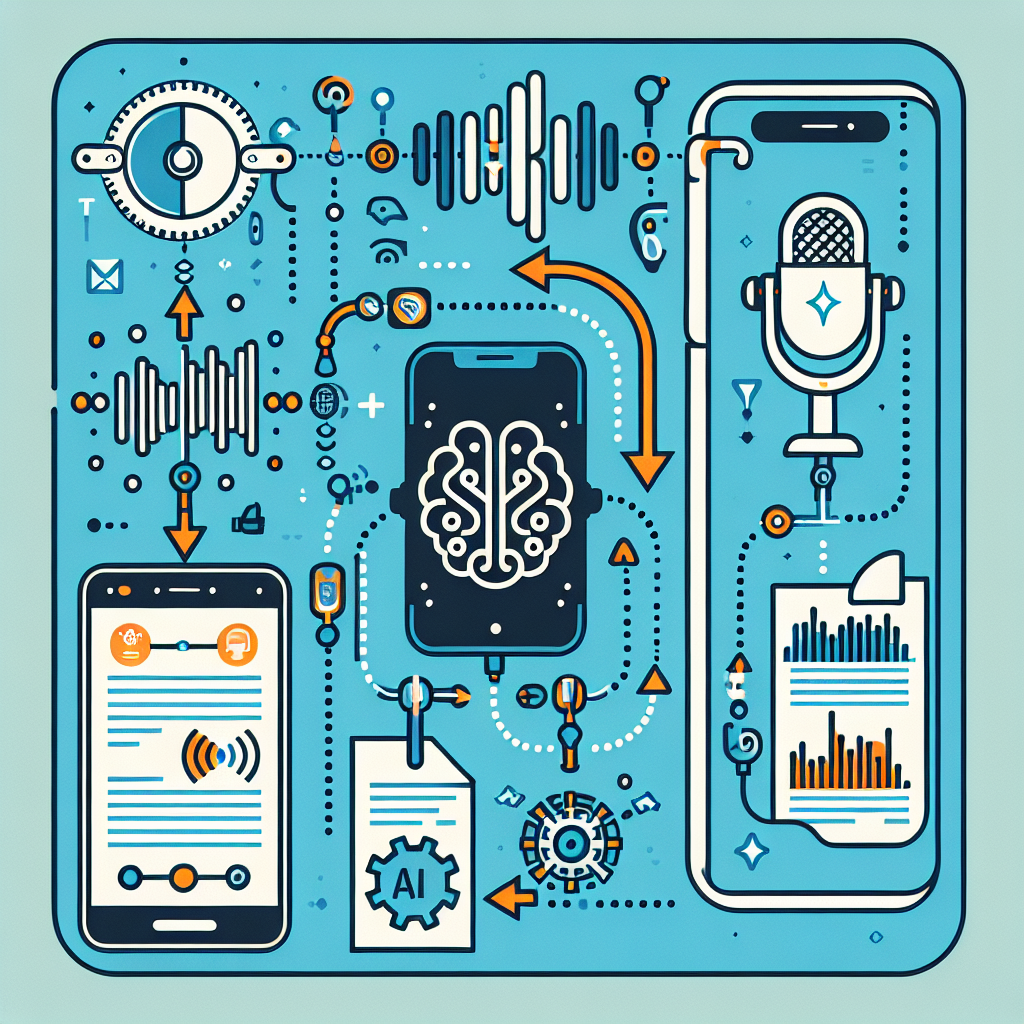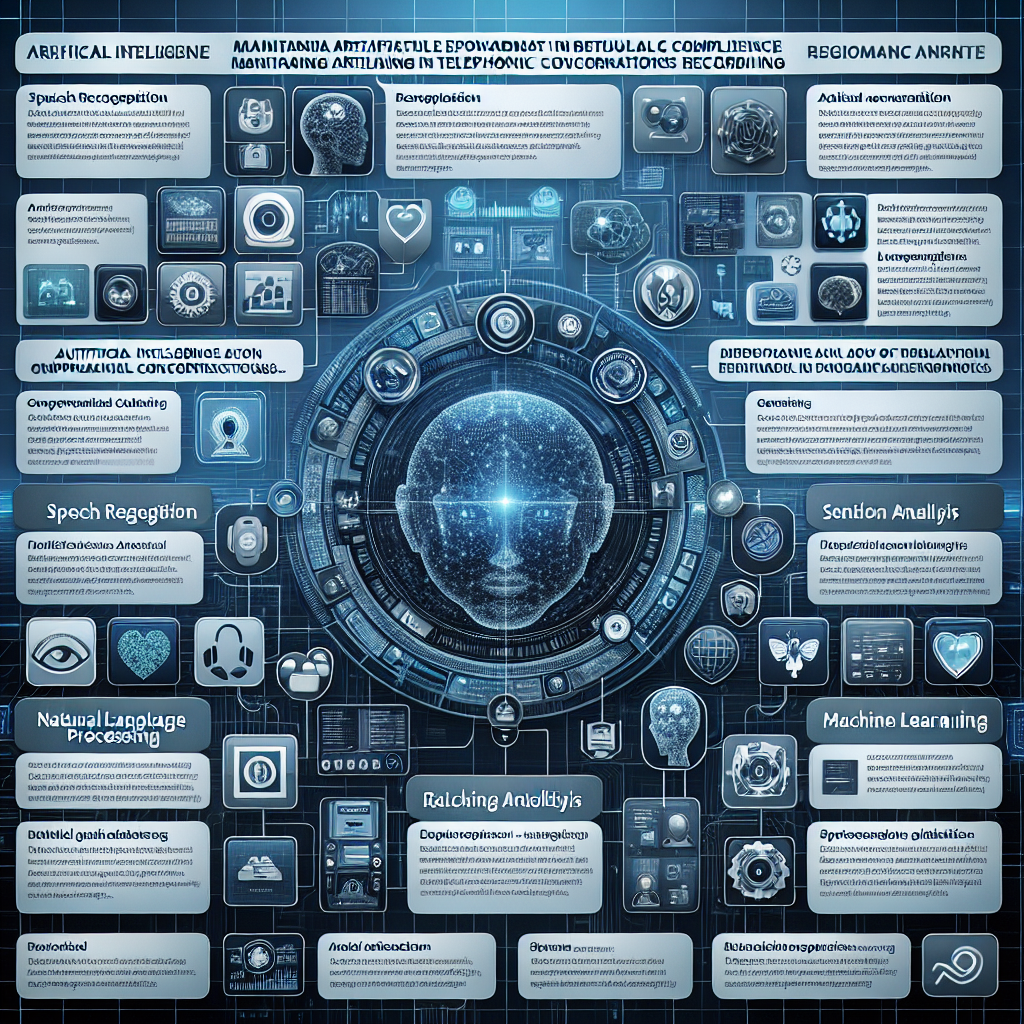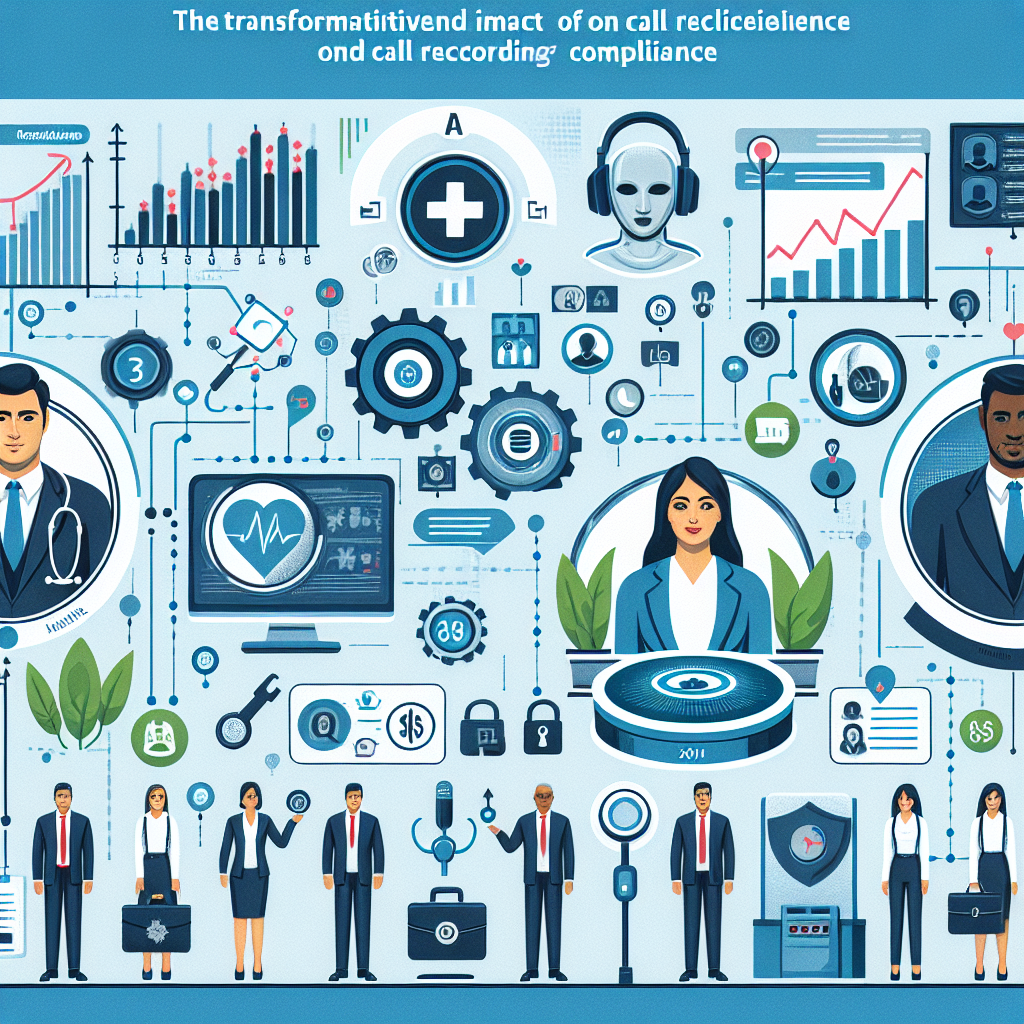
With the advent of digital transformation, the modern business landscape is increasingly turning to the integration of technology to simplify and optimize processes. In industries such as financial services, telecommunications, and customer service, where regular phone-based interactions between businesses and customers are common, call recording has become a crucial tool for quality assurance, training, and compliance. Thanks to breakthroughs in Artificial Intelligence (AI), regulatory compliance in call recording is becoming more seamless, efficient, and robust than ever before. AI-powered speech-to-text technology, for instance, plays a pivotal role in turning unstructured calls into a mineable dataset that can be analyzed for adherence to various legal and regulatory requirements.

Yet, with call recording, organizations also have to deal with legal and regulatory compliance, which can be quite complex due to the plethora of international, national, and local laws. From the Federal Communications Commission (FCC) in the U.S. to the Information Commissioner's Office (ICO) in the U.K., different regions have varying rules on the consent requirements for recording calls. Manually tracking and adhering to all these legalities can be a significant challenge.
That's where AI comes in. AI in call recording compliance not only helps automate the detection and redaction of sensitive information, but also keeps track of the constantly changing legal landscape, thereby maintaining compliance with the relevant regulations. AI-based systems can alert or prevent a certain activity from occurring if it is non-compliant.
To summarize, the integration of AI with call recording augments compliance capabilities, enabling businesses to adhere to legal and regulatory requirements more effectively. By tapping into the potential of AI, organizations can push boundaries, ensuring a safe and compliant way of operating while driving efficiency and growth.
When it comes to recording calls, particularly business-related conversations, it's essential to adhere to various legal and regulatory requirements. Among the most important frameworks governing call recordings are the General Data Protection Regulation (GDPR) and the Health Insurance Portability and Accountability Act (HIPAA).
GDPR was brought into effect by the European Union in 2018 to maintain data privacy and protect EU citizens from organizations using their data irresponsibly. It establishes the principle of consent, meaning that before recording calls, businesses must inform participants and get their agreement. Non-compliance with GDPR can result in heavy penalties.
On the other hand, HIPAA is a United States regulation designed to safeguard medical information. In the context of call recording, healthcare providers that record patient conversations must ensure the information is stored and handled securely, limiting access only to authorised individuals. Detailed information about HIPAA compliance can be found on the U.S. Department of Health & Human Services website.
Besides GDPR and HIPAA, there are country-specific laws and industry-specific regulations around the world that businesses need to comply with when recording calls.
AI plays a crucial role in call recording compliance by offering tools that automatically detect and handle sensitive information, ensuring the recorded data is processed according to the legal requirements. Whether it’s automatic consent management or secure storage and access restriction, AI can make compliance easier, efficient and less error-prone. However, the use of AI in maintaining compliance should also align with regulatory and ethical considerations.
Always remember, non-compliance with these legal and regulatory frameworks can not only result in financial penalties but can also negatively affect the business's reputation. Therefore, understanding these rules and utilising AI tools for effective compliance management is essential.
In the fast-paced world of call centers, ensuring compliance with legal and regulatory requirements is not just a necessity but a priority. This responsibility has become remarkably easier with the advent of AI technologies. AI aids immensely in compliance management in the field of call recording.

One of the key AI technologies employed is speech-to-text algorithms. These sophisticated tools transcribe calls into text, simplifying the process of review and eliminating the need for tedious manual transcription. With the text easily searchable, detecting any compliance violations becomes a breeze. Companies like Google and IBM provide robust speech-to-text services.
Another crucial element is pattern recognition. AI scrutinizes call transcripts to recognize patterns and trends, identifying issues before they amplify into significant problems. This proactive approach mitigates the risk of non-compliance and potential repercussions. Relevant services include Google’s Vision API and TensorFlow, both offering advanced pattern recognition capabilities.
Lastly, automated alert systems play a pivotal role. These systems are programmed to generate alerts when potential non-compliance scenarios arise. Critical calls can be flagged instantly, allowing timely intervention and preventing breaches. Solutions like Logically and IBM’s Netcool Operations Insight offer such capabilities.
To sum up, AI technologies – primarily speech-to-text algorithms, pattern recognition, and automated alert systems – act as a powerful trio in managing call recording compliance. This union optimizes the process, ensuring adherence to legal and regulatory requirements while also enhancing operational efficiency.
As businesses increasingly turn to Artificial Intelligence (AI) to enhance call recording systems for compliance purposes, they are faced with a myriad of challenges to effectively integrate these sophisticated tools. These challenges span from critical technical requirements to ethical considerations, and practical issues related to data security, AI bias, and the balancing act between automation and human oversight.
The act of recording calls inherently involves managing sensitive data, which must be shielded from misuse or unauthorized access. When introducing AI into call recording, the risk profile magnifies, as the technology needs to access, process, and store extensive amounts of information. There are numerous cases of data breaches within AI systems being reported, such as the Capital One data breach that compromised the personal information of over 100 million people. Therefore, businesses need to prioritize, even more, securing customer data as they deploy AI within their call recording systems.
Bias in AI has become a pressing concern in recent years. The inherent risk arises when AI, trained on flawed data, inherits and perpetuates systemic bias. This issue extends to call recording AI, which could unfairly flag or miss important compliance issues based on its training. Companies must therefore ensure their AI is trained on a comprehensive and representative dataset to minimize this risk.
There's a delicate balance in leveraging the automation capabilities of AI in call recording and maintaining human oversight. While AI significantly reduces the time and resources required to monitor and analyze calls for compliance, over-reliance on these systems can lead to unspotted errors or misinterpretations. This is especially true given that AI systems do not possess human judgment which is often required in assessing nuanced communication. Businesses must therefore strike a balance, using AI to streamline processes but also having human oversight to verify AI findings.
To confront these challenges, companies will need to undertake a careful evaluation of their data protection strategies, AI training programs, and their monitoring processes when implementing AI in call recording systems. The benefits offered by AI in call recording for compliance purposes are huge, but they must be pursued responsibly to protect both the company and its customers.
As industries digitize their processes, the advent of AI in call recording compliance proves pivotal in streamlining operations with the following real-world applications proving instructive.

Firstly, for businesses in the finance sector, AI in call recording compliance technology has been a game-changer. J.P. Morgan, for instance, utilized AI tools to monitor and analyze over 17,000 hours of recorded voice. This enabled the company to identify and address regulatory concerns rapidly and efficiently and drastically reduced costs associated with call recording review.
Secondly, in the healthcare sector, Mercy Health turned to AI solutions to facilitate HIPAA compliance in their call recording. AI detected and redacted sensitive patient information from call recordings, ensuring security and compliance.
Lastly, in terms of customer service, Uber's utilization of AI for recording and data analysis of customer support calls has been influential in ensuring quality control and data protection. This prevents any possible breach of trust and keeps the company compliant with regulations across borders.
In conclusion, AI integration in call recording compliance has demonstrated vast improvements in terms of efficiency, cost, and in meeting legal and regulatory requirements across sectors. The future will only see more such advancements as technology and compliance requirements continue to develop.
As the integration of artificial intelligence (AI) evolves within the compliance landscape, certain future trends and predictions are emerging that will shape this fusion between AI and call recording compliance. AI technologies are anticipated to progress in their capabilities rapidly, promising significant changes to the regulatory environment for call recording.
Arguably, the most anticipated development in AI is the refinement of Machine Learning (Random Forest), a technology that learns and improves from experience. In the context of call recording compliance, this could simplify the process of understanding and adapting to various regulatory environments, significantly reducing the risk of non-compliance fines.
Current AI models turn enormous amounts of raw data into insights. Future AI technologies might provide an extra layer of predictive analytics, analyzing data patterns to predict future outcomes. This could become a game-changer in the realm of compliance, enabling companies to stay one step ahead of potential regulatory concerns.
A transformative development could be AI's progress in voice recognition. This could make transcription more accurate and efficient – a huge advantage considering the complexities within different dialects and languages. However, it also brings notable GDRP implications with respect to personal data and privacy.
Regulatory bodies across the globe are starting to understand the potential and implications of AI technologies. Regulations are likely to become more detailed and complex, requiring a comprehensive AI-powered tool, such as IBM Watson, capable of adapting to advancements in technology and changes in laws.
Companies can prepare for these shifts by integrating advanced AI technologies into their existing systems while keeping an eye on the evolving regulatory environment. It's crucial to balance innovation and compliance, ensuring the use of AI doesn't compromise regulations.
Indeed, the future holds exciting developments for AI in call recording compliance. The exact course it will take is uncertain, but one thing is clear: AI will keep revolutionizing this field, and those who adapt will thrive.
Start your free trial for My AI Front Desk today, it takes minutes to setup!








